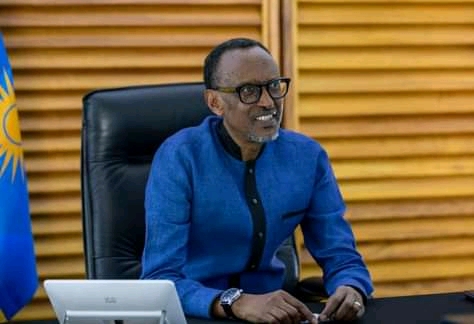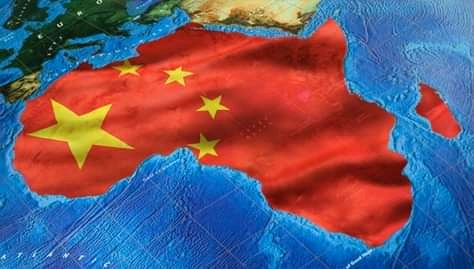By: Ollus Ndomu
China’s relationship with Africa defies all punchy news headlines and conventional stereotypes. For a long time now, China has been the continent’s ever-available diplomatic partner with Chinese encompassing not only natural resources but also issues of trade, security, diplomacy, and soft power. Beijing has always initiated policy initiatives that make the Sino-Africa ties look vibrant and two-way dynamic.

In the last two decades, China has established itself as Africa’s new investor face and major aid donor, but the mode, scale and scope of Chinese investment and practices are often misquoted and underreported by the press.
Why China in Africa?
China has maintained its presence on the continent for four overarching strategic interests. First, it wants access to natural resources i.e. oil and gas. By 2020, Beijing had imported more oil from Africa and the Middle East compared to its economic competitor, the United States. For its long-term plan of becoming the world’s leading power in all fronts, China has doubled its economic influence in major oil-rich countries including Sudan, Angola, and Nigeria. Second, investments in Africa, a huge market for Chinese exported goods, might facilitate China’s efforts to restructure its own economy away from labor-intensive industries, especially as labor costs in China increase, RAND.
Thirdly, China is in Africa for political legitimacy. Just like there is no such a thing a free lunch, the Chinese government is more responsive to Africa’s economic needs to raise China’s own international influence. With most African governments held in huge Chinese debt, Beijing’s “One China” policy, a prerequisite for attracting Chinese aid and investment, is enjoying gigantic support around the continent. Lastly, China is constructively contributing to Africa’s efforts for economic stability somewhat to mitigate security-related threats to Chinese economic interests.

Why Africa has nodded the Chinese agenda?
Africa looks to China for political recognition and legitimacy and to contribute to its economic development through aid, investment, infrastructure development, and trade. To a larger extent, many African leaders have shown preference for interacting with China and not the United States and other democracy-preaching western governments. With little to no interest in advancing the cause of good governance, human rights, free media and free speech, China has assumed the big brother role over Africa, engaging economically without condescendingly threatening the continent’s all power-hungry dictators. Africa has no better ally except those that remain silent on electoral fraud, suppression of dissent, human rights violation and the gun fire.

Additionally, African leaders feel China is more accomodative to invest even in high-risk projects or in remote regions, which are not appealing to Western governments and their investors. In its 2019 survey, a research cooperation, RAND, found that some Africans aspire to replicate China’s rapid economic development with a belief that their nations can benefit from China’s recent experience in lifting itself out of poverty.
Dynamics of the Sino-Africa Relations under Covid-19

The emergency of the coronavirus pandemic in 2019 and its subsequent fast spread to every part of the world, put the Sino-Africa relations to test. For much of 2020, being Chinese in Africa was the worst possible stigma.
At home and abroad, Africans and Chinese people traded in blame-games without leaders coming out in the open to state their positions. However, following the viral videos in March and April 2020 that showed Chinese authorities forcibly evicting Africans from their homes in Guangzhou, China, for allegedly spreading COVID-19, the Sino-Africa relations grew even more sour with Africans at home taking to the streets and attacking Chinese nationals.

An uproar reverberated across Africa with condensed calls for deporting Chinese residents. With a trendy Twitter hashtag #DeportRacistChinese, Beijing introduced the “mask diplomacy,” to improve its pandemic-era image in Africa. At its initial stage, the mask diplomacy supplied the continent’s Covid-19 hard hit countries with vaccines, medical equipment and personnel.
To the contrary, Conversation Africa recognizes the “mask diplomacy” as part of China’s broader incursion into Africa that emerged from the United States’ global retreat.
Two years to the end of the Obama reign, China’s rising economic influence in Africa manifested itself in robust infrastructure development. For example, China has from 2015 spent US$11 billion on the Trans-Maghreb highway – from the Western Sahara to Libya.

Marks of Chinese infrastructure development are replete everywhere in Africa and the western world has held views that are different from those of majority beneficiaries.
The western world describe Chinese financing mechanisms as debt traps, suggesting they saddle African countries with high debts while consolidating China’s power around the continent. However, China’s willingness to finance the continent’s infrastructure development has been viewed favorably by African leaders following a decade of declining U.S. trade with Africa.
“They say China has lent too much to Africa,” Rwandan President Paul Kagame said in 2018, “but another perspective of the issue is that those criticizing China on debt give too little, and Africa needs the funding to build capacity for development.”

In the last two decades, the United States’ trade with Africa has been on constant decline. As of 2002, U.S.-Africa trade was almost double China’s trade with the continent: $21 billion, compared to $12 billion. By 2008, U.S.-Africa trade had surged to $100 billion.
By 2019, however, it had dropped to $56 billion. Meanwhile, China-Africa trade rose from $102 billion to $192 billion within the same 11-year period. As of this year, there is no single country in the whole wide world that comes close to matching China’s investments across Africa.
From 2016 to 2020, the Trump presidency did very little to counter China’s influence in Africa. President Trump’s ‘America first’ type of politics was fuel for the growth of Chinese influence in a continent that thrives on foreign aid, donations and technology transfer. For record sake, Trump is the first U.S. president in 27 years to never have set foot on the African soil.
With U.S. global retreat amid times fraught with a global health crisis, China pivoted to use the pandemic purposes of consolidating its influence through aid, attention and expertise.
Results of Mask Diplomacy
With sufficient Chinese aid, attention and expertise helping Africa to cushion itself from dire impacts of the pandemic, the continent’s leaders who reacted sharply to China’s ill-treatment of African students and business men and women during the early days of the Covid-19 have changed their tone. For example, Nigeria’s Muhammadu Buhari, recently disclosed that he was “satisfied with the progress of” Nigeria’s relationship with China.

With its China assuming powerful leadership positions within international institutions that play important roles in Africa, it is now more vivid that its influence intense than ever imagined. Out of 15 United Nations agencies, China heads four of them, including the Food and Agriculture Organization, or FAO, and the United Nations Industrial Development Organization. No country rivals China in this sense, Conversation Africa.
Additionally, China is establishing international organizations that compete with the functions of the Western-dominated U.N., including the Asian Infrastructure Investment Bank and the China Development Bank. As of 2018, the China Development Bank had funded 500 projects in 43 different African countries worth $50 billion.
Aligning with Africa’s ever sought after financial stability and inclusion, China is wielding influence and favor in ways beyond lending. For example, it canceled $78 million in debt owed by Cameroon in 2019. This was allegedly done in exchange for Cameroon’s support for China’s candidacy as director-general of the FAO.
Implications of surging Chinese influence on global business
China’s surging influence around Africa has global implications. The U.S. and its companies have awakened to the Chinese business takeover. In Africa, American companies are facing stiff competition from state-backed Chinese corporations as they bid for contracts. China has invested heavily in Africa to outcompete U.S. in the nearest future.

In fear of a possible complete Chinese takeover of global trade and politics, the Biden administration is pushing to engage more with Africa. With its complete withdraw from Afghanistan, the U.S. is courting a long-term strategy to counter China in Africa.
However, the ‘mask diplomacy’ through strategic vaccine distribution and PPE donations to African countries has earned China goodwill. China has embellished its reputation as a responsible global power that is always available to protect vulnerable populations in tough times. This casts the U.S. and Europe in bad light, especially that their response to the pandemic resulted into global vaccine gaps.

Biden’s U.S. may be pivoting to restore its influence in Africa, but it could be too late to outpace China given its overly reverberating goodwill among the continent’s leaders.
About author:
Ollus Ndomu is a Zambian born and educated writer, reseacher and editor. He holds a BA in English Language and Literature with Education and a certificate in Media and Arts from United States Institute of Peace. He is currently working for AfricaWorld Newspaper in the capacity of Editor besides being an Editor-in-Chief for the newfound Hot Platform Magazine Zambia.


